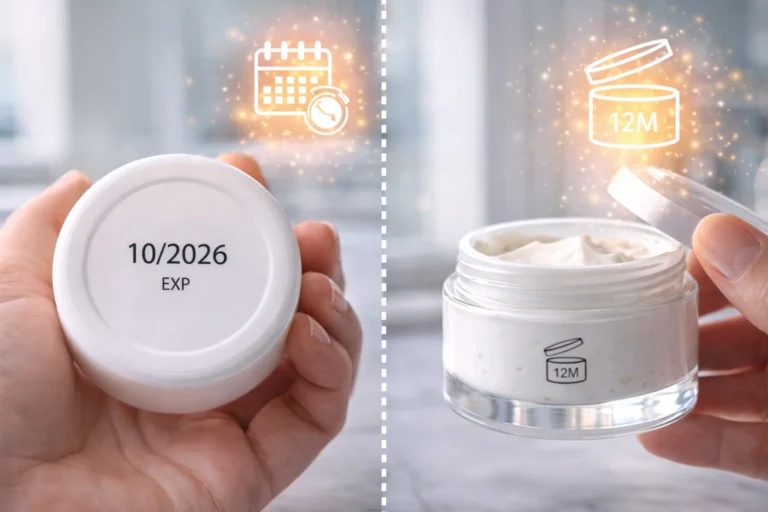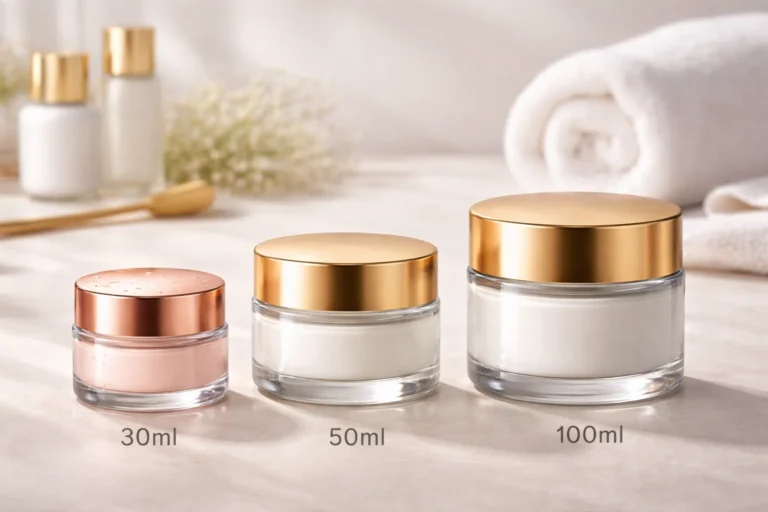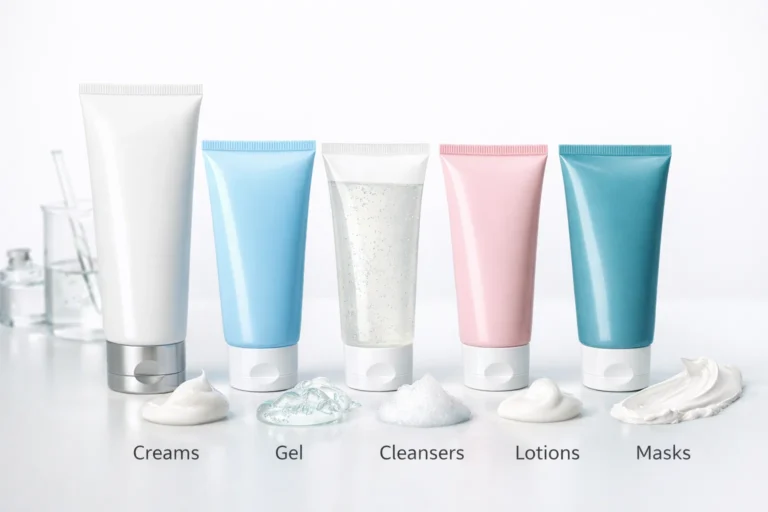
Cosmetic aluminum tubes are increasingly being used for packaging skincare and beauty products. Known for their sleek look, durability, and eco-friendliness, they are considered a premium packaging option.
Cosmetic aluminum tubes are lightweight, recyclable, and provide excellent protection for sensitive formulations.
Let’s examine the safety, potential drawbacks, and effects of aluminum in cosmetics and skincare.
Is aluminum packaging safe for cosmetics?
Aluminum packaging has become a preferred choice for many cosmetic brands.
Yes, aluminum packaging is safe for cosmetics1, provided it is coated internally to prevent product interaction.
The protective lining ensures that the aluminum does not react with the product, preserving its quality.
Benefits of aluminum packaging for cosmetics
- Barrier protection: Prevents light, air, and moisture from degrading the product.
- Recyclable: Supports sustainability initiatives.
- Durable: Resistant to damage during shipping and handling.
What are the disadvantages of aluminum tubes?
Despite its advantages, aluminum tubes have some limitations.
The primary disadvantages include potential product contamination2 if the lining is damaged and difficulties with recycling when combined with plastic caps.
Understanding these challenges can help manufacturers and consumers make informed choices.
Key disadvantages of aluminum tubes
- Vulnerability to damage: Dents or cracks can compromise the tube’s integrity.
- Recycling complexity: Mixed-material packaging is harder to recycle.
- Cost: Aluminum is more expensive than some alternatives like plastic.
Is aluminum absorbed through the skin?
The concern about aluminum absorption through the skin is often raised in discussions about cosmetics and personal care products.
Aluminum is minimally absorbed through the skin3, and the small amounts absorbed are considered safe by regulatory agencies.
Most aluminum in cosmetics is in forms that do not easily penetrate the skin barrier.
Factors affecting aluminum absorption
- Product formulation: Ingredients can affect absorption rates.
- Skin condition: Damaged or broken skin may increase permeability.
- Concentration: Levels in cosmetics are typically low and within safety limits.
Is aluminum in skincare bad?
Aluminum in skincare is often debated due to concerns about its potential health effects.
Aluminum in skincare products is not inherently bad, especially when used within regulatory safety limits4.
Scientific research has not established a direct link between aluminum in cosmetics and adverse health effects.
Common uses of aluminum in skincare
- Packaging: Provides protection and extends product shelf life.
- Active ingredients: Found in certain antiperspirants to reduce sweat.
Conclusion
Cosmetic aluminum tubes offer a sustainable and functional packaging solution for skincare products. While questions about safety and absorption arise, aluminum remains a widely accepted material when used responsibly. Understanding its pros and cons can help you make informed decisions about your skincare packaging choices.
-
Learn why aluminum packaging is considered safe for cosmetics and personal care products. ↩
-
Discover the potential drawbacks of using aluminum tubes for packaging. ↩
-
Understand the science behind aluminum absorption through the skin and its safety. ↩
-
Explore the regulatory guidelines and safety assessments for aluminum in skincare products. ↩


